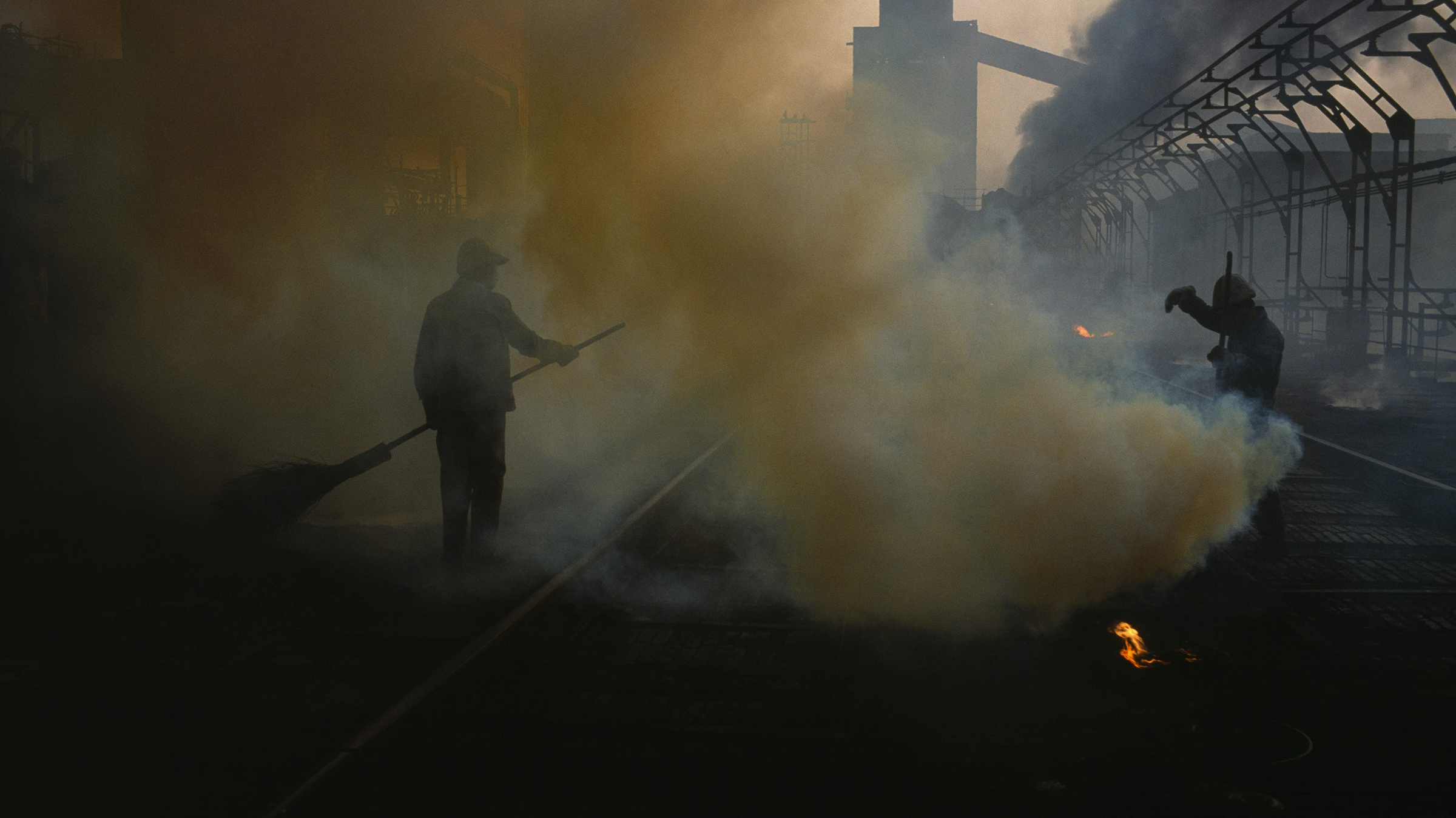The environmental advocacy group partners with Outlaw Moscow on a series of face masks to bring attention to air pollution in Russia.
As the world’s eyes gaze on Russia for the World Cup, streetwear brand Outlaw Moscow have partnered with Greenpeace on a collection of face masks to bring attention to the rising problem of pollution in the former Soviet Union.
Embolden with the words “Clean Air Now,” running across the side of the masks, it’s a part of a wider global campaign to get people thinking about pollution. Russia faces huge environmental changes. This month alone almost 100 tonnes of dead herring turned up on the coast, toxic landfills have been making children sick, and it was revealed that wild forests are disappearing in Russia at a faster rate than anywhere else in the world.
Launched as part of Outlaw Moscow’s Athletic Club uniform, designer Maxim Bashkaev explained how he wanted to foster a deeper relationship between the environment and sport. “We wanted to remind people that alongside football we shouldn’t forget about something that matters more–ecology,” Maxim said. “It’s easy to ruin it and hard to preserve.”
The masks are purely functional. “We printed the Clean Air Now slogan and our AYTЛО logo on them,” Maxim said. “Simple and clean. We want the masks to directly use the message of Greenpeace campaign. They are not decoration, but functional. People can really use when the air is polluted.”
Maxim went on to explain how the collaboration happened. “Greenpeace approached us. We are similar in philosophy, we fight for what we believe in, be it human rights, diversity, tolerance or ecology.”
When asked why they wanted to collaborate with the designers, Greenpeace Russia reiterated their shared values of protest and independence. “We wanted a symbol that unites everyone—soccer players, different cities, the whole world. Air pollution has no geographical borders. Everyone feels impacted. The designer’s masks are perfect to spread the message beyond the borders.”
Recent research commissioned by Greenpeace Russia highlighted 82% of Moscow’s residents are dissatisfied with the quality of the air they’re breathing. And it’s now just the capital that’s finding the polluted atmosphere hard to live with. In St. Petersburg it’s 77 percent. And in Kazan, it’s 60 percent.
“Greenpeace speaks about the most urgent environmental problems and demands solutions,” the Russian arm of the global campaigning organization said. “Outlaw Moscow believes in a cultural reading of the protest as the rebel against ordinary reality and the boring life in the city. The young are not addicted to their cars—the main source of pollution in the majority of the Russian cities. They love green-mobility, for instance, these are the first to cycle in the cities and to test electric scooters. They create the trends.”
Clearly inspired by Russian constructivism, the designers are known for combining color blocking with sportswear. Founded by Russian designers Di Minrakhmanova and Maxim Bashkaev, in 2016 Outlaw Moscow received the SHOWstudio Fashion Film Award for their portrayal of an eclectic bunch of outsiders navigating the snowy streets of Moscow.
The brand is no stranger to political fashion. The label previously worked with creative agency DADA on an alternative Russian Winter Olympic kit featuring English and Korean slogans. Russian athletes were banned from wearing national symbols or the country’s flag for alleged doping offenses at the Sochi 2014 games, so Outlaw created a range of subversive designs, staying within the Olympic committee’s regulations.
But when asked if Outlaw is a political brand, Max was pretty clear: “We are cultural. Politics are temporary, art is forever. We have our vision and we firmly stand for what we believe. Thus when something happens in politics, ecology, culture or any other field which matters we can’t be silent. We feel responsible to talk not only about fashion but about things that matter. In the end we are part of a community and each voice matters.”
The pollution masks are not for sale, but instead “active supporters of green mobility” can win one by following Greenpeace’s social channels.







